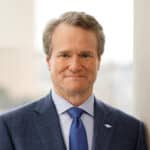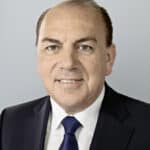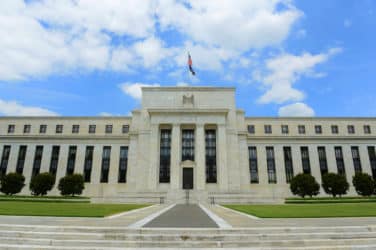

Brian Moynihan, chair and chief executive of Bank of America, said he would like sustainable bonds to expand to include issues such as biodiversity and that the market is just getting started.
Moynihan spoke on March 9 at the 2022 IIF Sustainable Finance Summit. He said: “It is pretty amazing how much capital is coming into green bonds and we are just getting started. You are going to see a lot of action.”
Now: @BofA_News CEO Brian Moynihan joins the #IIFLive Sustainable Finance Summit to discuss the vital role of #capitalmarkets in #sustainablefinance. Tune in now: https://t.co/yQzmQeVmbR pic.twitter.com/bHUorBJtBT
— IIF (@IIF) March 10, 2022
“A power company could issue a green bond that says if I am not at 50% renewables by a certain date, I pay a higher interest rate” he said. “That is backing up the strength of their commitment and the market is rewarding them by providing access to capital to help them transition so that is a good business system that we believe in.”
Global issuance of sustainable bonds – including green, social, sustainability, and sustainability-linked bonds – will surpass $1.5 trillion in 2022, according to research from S&P Global Ratings.
The rating agency found that while sustainable bonds still comprise a relatively small part of global bond issuance, it is increasing rapidly – hitting 11% of global issuance in 2021 from less than 5% three years earlier.
S&P believes that this year sustainable bonds will account for roughly 17% of total 2022 issuance as public and private sector issuers continue to tackle their climate commitments.
“As the issuer pool diversifies across sectors, geographies, entity sizes, and credit quality, new issuers will have more financial incentives to advance their sustainability goals and agendas,” said S&P Global .
In April 2021 Bank of America announced a goal of deploying and mobilizing $1 trillion by 2030 in its Environmental Business Initiative in order to accelerate the transition to a low-carbon, sustainable economy. Moynihan said: “My guess is that we will beat that over the next 10 years.”
Bank of America has predicted that the total cost of transition to net zero will be approximately $150 trillion.
Moynihan said the bank has energized relationship managers to talk to their clients about the transition in great depth, including its many middle market clients.
“The net zero commitments by big clients require a complete change in their supply chain,” he added. “That is going to move billions into new purchasing activity across the world and our job is to provide advice and financing.”
Moynihan stressed the need for carbon pricing for offset markets and voluntary carbon initiatives. He said: “You need a price to value the carbon take out and then you can start scaling offset markets.”
However, he emphasized that finance will not control the transition as it is the private and public sector that needs to change behaviour.
“Finance is going to reflect this outcome,” Moynihan added. “It can help educate, advise, create deals, create activity and structure.”
Regulatory coordination
Axel Weber, chair of UBS and chair of IIF, said at the summit that regulars can provide either detailed rules or a more general principles-based regime backed with strong oversight and enforcement. He believes both strategies can lead to better market integrity and disclosures although he would prefer the principles-based approach.
“The most recent round of TCFD reports, including the one by UBS, are a good starting point,” he added.
The Financial Stability Board established the Task Force on Climate-Related Financial Disclosures to develop recommendations for more effective climate-related disclosures and more than 2,600 organisations have expressed their support for the recommendations.
Weber also stressed the need for regulators to co-ordinate standards internationally as there are approximately 25 different taxonomies around the world and no common definition of green.
“We have found that mutual recognition and common standards haven’t really worked with regards to capital regulation and I would be highly concerned if we try to do the same in sustainability,” said Weber. “It is absolutely important that the regulators put their heads together and come out with a common standard.”
In May 2021 UBS appointed Michael Baldigner in the newly created role of chief sustainability officer. Before joining UBS Asset Management in 2016 as head of sustainable and impact investing, Baldinger was chief executive of RobecoSAM, the sustainability specialist firm.
Baldinger reports to Suni Harford, group executive board sponsor for sustainability and impact, and president of UBS Asset Management. Weber said sustainability is integral to the UBS board and advised that firms should appoint a chief sustainability officer for accountability.
“Make no mistake, once you embark on the sustainability journey, it impacts massively on your day-to-day decisions in every part of your business from credit to the investment bank, to capital markets, wealth or asset management products and clients’ journeys into greening their portfolios,” Weber added.
However, he argued that once firms embark on the journey staff find there is business reward, as well as an environmental reward.
UBS was the first bank that made the sustainable investment portfolio in wealth management as the standard according to Weber.
“Over the years the sustainable portfolios have really performed better and that is why clients are buying into it,” he added.








